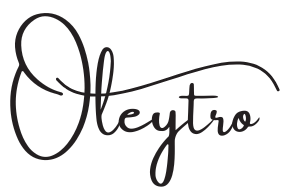What is AI Governance Tools Software?
AI Governance Tools Software helps organizations manage, monitor, and ensure that their AI systems operate in a secure, ethical, and legally compliant manner. With AI becoming more integrated into business and daily life, maintaining trust, transparency, fairness, privacy, and security has become increasingly important. AI Governance Tools provide mechanisms to assess, audit, and monitor AI models to ensure they meet these standards.
These tools cover areas such as model performance and reliability analysis, data privacy and security, bias detection, ethical compliance, and adherence to regulatory requirements. As such, AI Governance Tools play a crucial role in helping companies develop responsible AI systems that align with legal and societal expectations.
Leading AI Governance Tools Comparison
Below is a comparison of some leading AI governance tools, each providing unique solutions to ensure AI systems are safe, ethical, and regulatory-compliant.
1. CalypsoAI
- Features: Known for its robust model security, verification, and testing processes, CalypsoAI is particularly suited for organizations dealing with sensitive data.
- Pros: High-level security and compliance features make it popular in defense and public sectors.
- Cons: Limited integration options compared to other platforms.
2. Credo.ai
- Features: Focuses on AI policy compliance and risk assessment, providing users with tools to monitor ethical compliance and identify potential risks in models.
- Pros: Advanced compliance management features with customizable ethical audits.
- Cons: May be complex for non-technical users.
3. DynamoFL
- Features: Primarily focuses on data privacy, offering tools for managing AI models’ privacy compliance.
- Pros: Prioritizes data security and privacy, ensuring compliance with international regulations like GDPR.
- Cons: Limited features for broader AI management capabilities.
4. Guardrails AI
- Features: Provides extensive tools for ethics, security, and compliance checks, helping AI models avoid unintended consequences.
- Pros: Adaptable for a wide range of industries.
- Cons: May be costly for smaller businesses.
5. Harmonic.Security
- Features: Known for AI model security, monitoring, and threat detection to maintain system security.
- Pros: Comprehensive tools for model security and monitoring.
- Cons: Complex user experience may require technical expertise.
6. HiddenLayer
- Features: Focuses on AI security, with tools for attack prevention and defense, providing innovative solutions for AI security.
- Pros: Strong in threat detection and layered security.
- Cons: User interface can be more challenging than some other platforms.
7. Holistic AI
- Features: Offers a comprehensive approach to AI risk and compliance management, with tools for AI safety, ethics evaluation, and compliance.
- Pros: User-friendly interface and a broad compliance audit network.
- Cons: Performance may slow with large datasets.
8. LightBeam.ai
- Features: Emphasizes AI privacy management and data security, with a strong focus on personal data protection.
- Pros: Strong on data privacy and compliance with regulations such as GDPR.
- Cons: Limited in other AI management functions.
9. Reality Defender
- Features: Real-time detection of deepfakes and fake content, popular in media and security sectors.
- Pros: Effective at detecting fake content, with strong solutions for social media and security.
- Cons: Primarily focused on fake content detection, with a narrower scope.
10. Zenguard AI
- Features: Offers AI security, risk analysis, and compliance tools, tailored for large-scale data environments.
- Pros: Customizable and broad security and compliance coverage.
- Cons: May be overly complex for smaller, less data-intensive companies.
Conclusion
When choosing an AI Governance Tool, companies should consider their specific AI strategies and needs, focusing on tools that best support their security, compliance, and ethical standards. Each tool listed here offers unique features that can help organizations deploy responsible, trustworthy AI systems aligned with industry standards and regulatory requirements.
